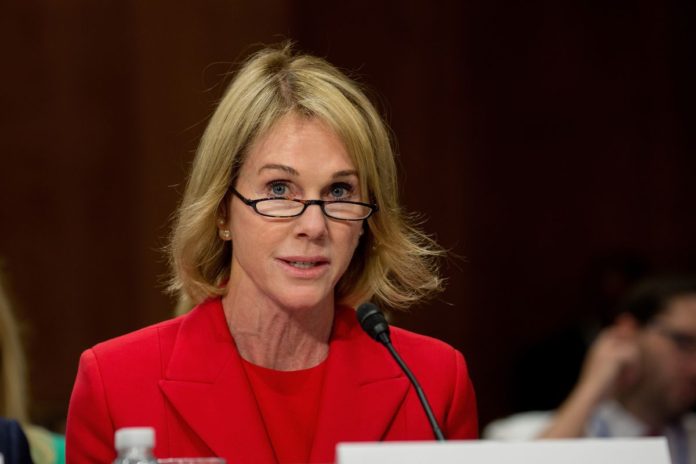Ambassador Kelly Craft
Permanent Representative
U.S. Mission to the United Nations
New York, New York
April 23, 2020
Explanation of Position on the UN General Assembly Resolution on the Rwandan Genocide
Since the 1994 Genocide in Rwanda and the establishment in 2003 of the “International Day of Reflection on the Genocide in Rwanda,” April 7 has become a solemn day to commemorate the more than 800,000 men, women, and children whose lives were lost during 100 days of unspeakable violence. The United States joins consensus with the entire UN General Assembly to support the continuation of this “International Day of Reflection on the 1994 Genocide against the Tutsi in Rwanda” so that each year, we may continue to honor the victims and the survivors who carry the memories of these atrocities.
This annual day of reflection is a reminder of our common humanity and recommits us to protect the vulnerable, prevent mass atrocities, and respect the inherent dignity of every human being.
The United States remains committed to supporting the people of Rwanda in their efforts to preserve the evidence of the 1994 genocide. Indeed, one of the strongest measures we can take to prevent mass atrocities from occurring again is to preserve the history of what has taken place and to properly capture the scope of the acts committed.
As such, the United States is concerned that changes made to the text – starting in 2018 and extended today – narrow the focus of the resolution to the Genocide against the Tutsi in Rwanda, and fail to fully capture the magnitude of the violence that was committed against other groups. Many Hutu and others were also killed during the genocide, including those murdered for their opposition to the atrocities that were being committed. Failing to honor and remember these victims presents an incomplete picture of this dark part of history.
Revising the language used to describe past genocides sets a dangerous precedent and risks leading to revisiting other days of reflection. We support the resolution’s overall aim to reflect on the genocide in Rwanda, but also must underscore that our understanding of the circumstances of the genocide in Rwanda has not changed.
We urge our fellow member states to insist that histories of past genocides and other mass atrocities do not fade over time. We owe it to each and every victim of these crimes to faithfully carry forward their memories as part of our vow of “never again.”
We are also concerned about the removal of the reference to the International Residual Mechanism for Criminal Tribunals, which continues its important work to hold those responsible for genocide accountable. The United States urges all states to cooperate with the IRMCT, including its search for eight Rwandans still wanted for their roles in the genocide.
The United States firmly believes that respect for all human rights, including freedom of expression, is critical in the prevention of genocide and other mass atrocities. We reiterate that any efforts to counter incitement and hate speech should respect freedom of expression.
We must also express our disappointment in the negotiation process that led to this resolution. The result is a weaker text that strips out references that would have benefited the Government of Rwanda in its efforts to seek accountability, while forcing Rwanda’s allies, including the United States, to accept language we find concerning. While we are not calling for a vote lest others get the wrong impression about our unwavering support for justice for victims of the genocide, we are concerned that the negotiation process potentially weakened the text, limited the impact, and added unexpected costs.
As we reflect on the Rwandan genocide this year and always, the United States joins with the people of Rwanda and the international community in solemn reflection to commemorate all of the victims killed in the genocide in Rwanda, and to recommit to doing everything in our power to prevent such atrocities from happening again.
4.20.2020 Letter to GA President
“The United States remains committed to supporting the people of Rwanda in their efforts to preserve the evidence of the 1994 genocide. Indeed, one of the strongest measures we can take to prevent mass atrocities from occurring again is to preserve the history of what has taken place and to properly capture the scope of the acts committed.
As such, the United States is concerned that changes made to the text – starting in 2018 and extended today – narrow the focus of the resolution to the Genocide against the Tutsi in Rwanda, and fail to fully capture the magnitude of the violence that was committed against other groups. Many Hutu and others were also killed during the genocide, including those murdered for their opposition to the atrocities that were being committed. Failing to honor and remember these victims presents an incomplete picture of this dark part of history.”
Ambassador Kelly Craft
Permanent Representative
U.S. Mission to the United Nations
New York, New York
April 23, 2020
































































